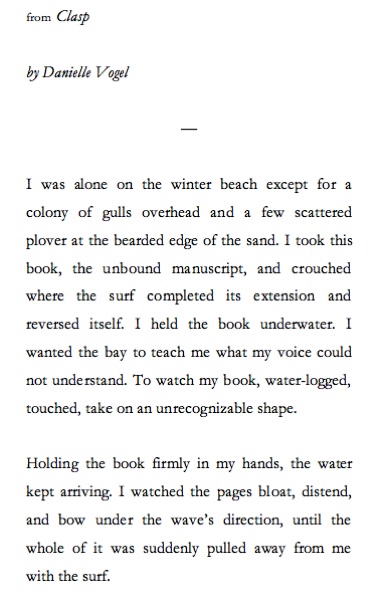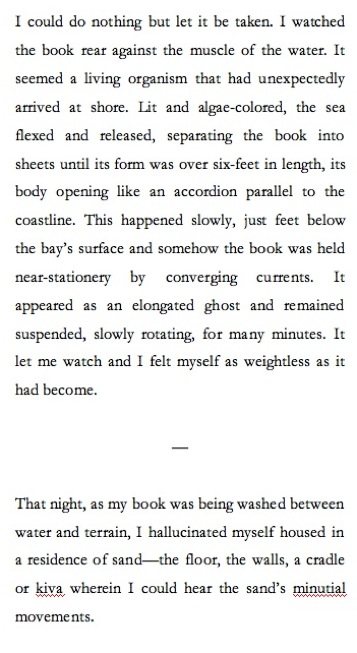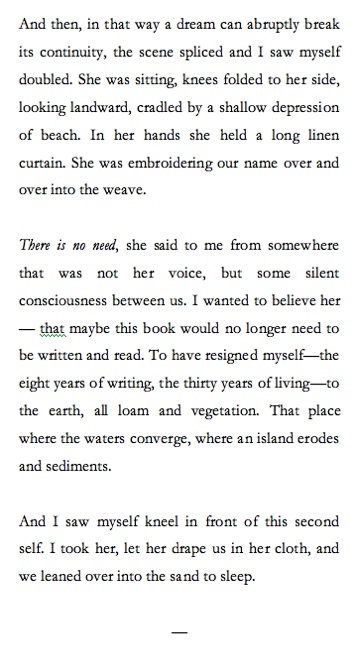Well, here we are at the conclusion of a wonderful na·po·mo at the dictionary project! I’m grateful that poetry gets its own month and also grateful that we can continue to read and support poets, to write and share our own poetry all year. I want to thank all of our wonderful poets for the work they have written and shared with us and special thanks goes to our last poet, Danielle Vogel.
And in the first time in the history of this literary community, a word was bibliomanced for the second time. I guess this is appropriate because it is a word we probably all need to be reminded of from time to time. The word is surrender. Those of you who have been regular followers of the dictionary project will remember that I first wrote about surrender in the fall in relationship to an Amy Goodman reading I attended. I am delighted to share with you Danielle’s gorgeous and evocative take on the word. Thanks go to Danielle for providing the image as well.
And thanks to you, today and always, for reading and being part of this process.
sur·ren·der (səˈrendər), v.t. [OFr. surrendre: sur-, upon, up + rendre, to render], 1. to give up possession of or power over; yild to another on demand or compulsion. 2. to give up claim to; give over or yield, especially voluntarily, as in favor of another. 3. to give up or abandon; as, we surrendered all hope. 4. to yield or resign (oneself) to an emotion, influence, etc. 5. [Obs.], to give back or in return. v.i. to give oneself up to yield. n. [Anglo-Fr. < OFr. surrendre (see the v.); inf. used as n.], 1. the act of surrendering, yielding, or giving up. 2. in insurance, the voluntary abandonment of a policty by an insured person in return for a cash payment (surrender value), thus freeing the company of liability.
SYN.–surrender commonly implies the giving up of something completely after striving to keep it (to surrender a fort, one’s freedom, etc.); relinquish is the general word implying an abandoning, giving up, or letting go of something held (to relinquish one’s grasp, a claim, etc.); to yield is to concede or give way under pressure (to yield one’s consent); to submit is to give in to authority or superior force (to submit to a conqueror); resign implies a voluntary, formal relinquishment and, used reflexively, connotes submission or passive acceptance (to resign an office, to resign oneself to failure).
 Danielle Vogel’s textile scroll-works and ceramic book artifacts, which explore the ceremonial gestation of a manuscript as it is written, have been exhibited in galleries across the country. Her most recent collection, Narrative & Nest, is a cross-disciplinary study relating the construction of nests to the writing of books — both as complex sites of composition, habitation, instinct, and narrative. She is the author of Narrative & Nest (Abecedarian Gallery, 2012) and lit (Dancing Girl Press, 2008). She received her MFA in Writing & Poetics from Naropa University, and is currently a PhD candidate at the University of Denver. She lives in Providence, Rhode Island, where she is writing toward the completion of her book Clasp, excerpted here. Her author photo was bibliomanced by Maurice Blanchot’s The Writing of the Disaster and reads: “a turning point which puts us face to face with the demand of the turning point.” Danielle wrote, ‘I often carry books alongside the books I am writing. I dip into them for messages the way one might visit the Tarot. One such book is Maurice Blanchot’s The Writing of the Disaster. While writing the middle section of Clasp, I asked Blanchot’s book to interrupt my writing practice with a message and this is what I received.”
Danielle Vogel’s textile scroll-works and ceramic book artifacts, which explore the ceremonial gestation of a manuscript as it is written, have been exhibited in galleries across the country. Her most recent collection, Narrative & Nest, is a cross-disciplinary study relating the construction of nests to the writing of books — both as complex sites of composition, habitation, instinct, and narrative. She is the author of Narrative & Nest (Abecedarian Gallery, 2012) and lit (Dancing Girl Press, 2008). She received her MFA in Writing & Poetics from Naropa University, and is currently a PhD candidate at the University of Denver. She lives in Providence, Rhode Island, where she is writing toward the completion of her book Clasp, excerpted here. Her author photo was bibliomanced by Maurice Blanchot’s The Writing of the Disaster and reads: “a turning point which puts us face to face with the demand of the turning point.” Danielle wrote, ‘I often carry books alongside the books I am writing. I dip into them for messages the way one might visit the Tarot. One such book is Maurice Blanchot’s The Writing of the Disaster. While writing the middle section of Clasp, I asked Blanchot’s book to interrupt my writing practice with a message and this is what I received.”




